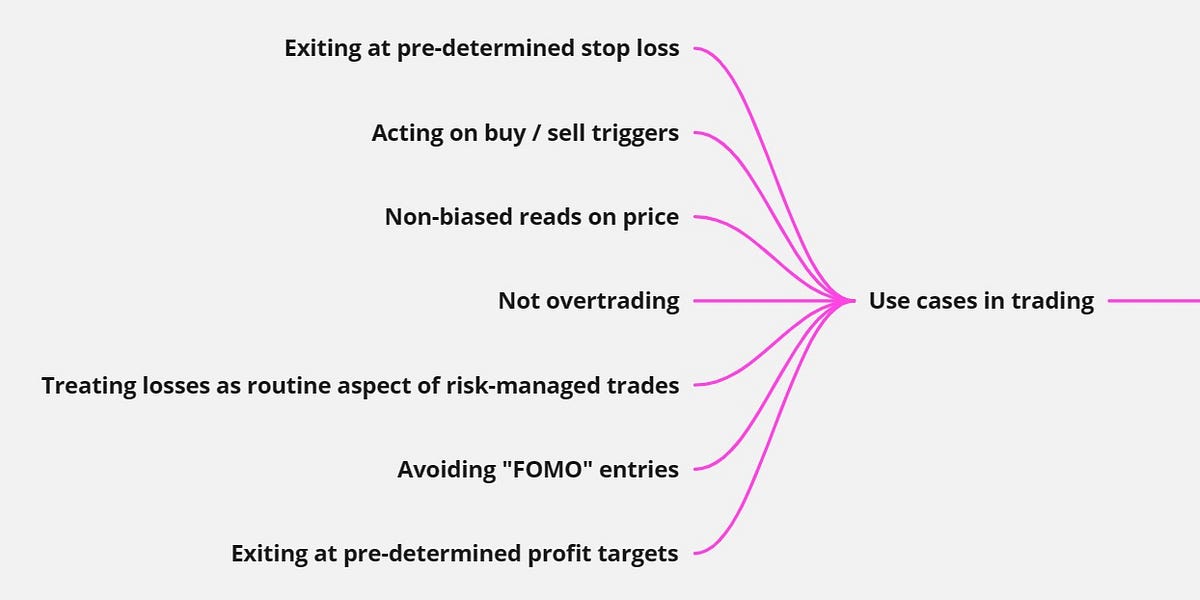Widespread hacks hit stock trading accounts in Malaysia, uncovering a concerning trend that has left many investors anxious and on high alert. These recent incidents have brought to light the vulnerabilities in trading platforms, with hackers employing sophisticated methods to gain unauthorized access to accounts. The aftermath has seen a significant impact on both individual traders and trading firms, prompting a need for enhanced security measures and a closer look at the systemic risks involved.
As traders scramble to protect their assets, the conversation around cybersecurity in the financial sector is gaining momentum. The significance of two-factor authentication and strong password policies has never been clearer, and awareness of common vulnerabilities is now crucial for anyone engaged in stock trading.
Overview of the Widespread Hacks

Recent incidents of hacking have severely impacted stock trading accounts in Malaysia, raising concerns among investors and trading firms alike. These widespread hacks have not only compromised personal information but have also led to significant financial losses for many individuals. The frequency and scale of these breaches highlight the urgent need for enhanced security measures in the financial sector.
Hackers employed various sophisticated tactics to infiltrate stock trading accounts, including phishing scams, malware, and social engineering. One common method involved sending fraudulent emails that appeared to be from legitimate financial institutions, tricking users into providing their login credentials. Additionally, malware was used to capture keystrokes and gather sensitive information directly from the victims’ devices.
Impact on Investors and Trading Firms
The repercussions of these hacking incidents have been felt across the investment landscape in Malaysia. A series of studies and reports indicate a troubling trend in both financial losses and investor confidence. The statistics surrounding these breaches are alarming and showcase the extent of the damage:
- Over 10,000 trading accounts have reportedly been compromised since the start of the year.
- Estimates suggest that investors have lost approximately RM 50 million due to unauthorized trading activities.
- Approximately 45% of traders expressed concerns about the security of their accounts, leading to a noticeable decline in trading volumes.
- Trading firms have seen an increase in operational costs as they enhance security protocols to protect their clients’ assets.
The growing number of affected individuals and firms underscores the urgent need for robust cybersecurity measures. As financial institutions work to bolster their defenses, investors must remain vigilant and proactive in safeguarding their accounts against potential threats.
“Cybersecurity is not just an IT issue; it’s a business imperative that affects the entire investment ecosystem.”
Security Measures and Recommendations

The recent widespread hacks on stock trading accounts in Malaysia highlight the urgent need for enhanced security measures among individual traders. Implementing effective security practices can significantly reduce the risk of unauthorized access and financial loss. By being proactive and informed, traders can safeguard their investments and personal information.
A comprehensive understanding of the security landscape is essential for traders. Below are some of the recommended security practices that every individual trader should adopt to bolster their defenses against potential cyber threats.
Recommended Security Practices
To effectively protect trading accounts, individual traders should consider the following security practices:
- Use strong, unique passwords for each trading account, consisting of letters, numbers, and special characters to enhance complexity.
- Regularly update passwords every few months to mitigate the risk of them being compromised.
- Avoid sharing account details or sensitive information through email or social media channels.
- Monitor account activity regularly and report any suspicious transactions immediately.
- Use a secure internet connection, avoiding public Wi-Fi networks, especially when accessing trading accounts.
These measures are fundamental in ensuring the integrity of trading accounts.
Importance of Two-Factor Authentication
Two-factor authentication (2FA) acts as an additional layer of security and is crucial for protecting trading accounts. By requiring not just a password but also a secondary verification method, 2FA significantly enhances account security.
Implementing 2FA can reduce unauthorized access attempts by over 90%.
Traders should enable 2FA wherever possible, as this adds an extra step that unauthorized users must overcome. This additional security feature can include methods such as SMS codes, authenticator apps, or biometric verification.
Common Vulnerabilities in Stock Trading Platforms
While trading platforms strive to maintain security, they can still harbor vulnerabilities that users should be aware of. Understanding these weaknesses can help traders take necessary precautions.
Some common vulnerabilities include:
- Outdated software that may not have the latest security patches, leaving accounts exposed to attacks.
- Phishing attacks where malicious entities impersonate legitimate platforms to steal login credentials.
- Insecure web connections, where data can be intercepted if not using HTTPS.
- Weak security protocols that do not encrypt sensitive data adequately, making it easier for cybercriminals to access information.
Awareness of these vulnerabilities can empower traders to take necessary actions, such as ensuring software is up-to-date and being vigilant against suspicious communications.
Regulatory Response and Guidelines
The response of Malaysian financial regulators to the recent widespread hacks on trading accounts has been swift and multifaceted. Recognizing the potential for significant harm to investors and the market’s integrity, authorities have taken decisive actions aimed at both immediate remediation and long-term enhancement of cybersecurity protocols in the financial sector.
In light of the recent cyber incidents, the Securities Commission Malaysia (SC) and Bank Negara Malaysia (BNM) have increased their oversight and scrutiny of trading platforms. This includes issuing warnings to firms to bolster their cybersecurity measures and conduct thorough audits of their systems. Regulators are also facilitating workshops and training sessions to educate firms on best practices in cybersecurity, emphasizing the importance of protecting sensitive user data and maintaining the integrity of trading platforms.
Actions Taken by Financial Regulators
To address the critical vulnerabilities exposed by the hacks, Malaysian regulators have implemented a series of actions designed to strengthen cybersecurity within the trading ecosystem. These actions include:
- Issuance of a directive mandating all trading firms to enhance their cybersecurity frameworks, ensuring they meet minimum security standards.
- Establishment of a dedicated cybersecurity task force within the SC to monitor threats and coordinate responses to incidents affecting trading platforms.
- Regular publication of guidelines on cybersecurity best practices tailored specifically for trading firms, outlining both preventive and reactive measures.
- Increased collaboration with international cybersecurity organizations to stay abreast of emerging threats and effective countermeasures.
Potential Regulatory Changes
As part of ongoing efforts to improve regulatory frameworks, potential changes have been discussed aimed at enhancing cybersecurity for trading platforms. These proposed changes include:
- Mandatory reporting of cybersecurity incidents, ensuring transparency and timely communication to both regulators and affected parties.
- Incorporation of cybersecurity risk assessments as a requirement for obtaining and renewing licenses for trading firms.
- Introduction of stricter penalties for non-compliance with cybersecurity regulations, aiming to deter lax security practices.
- Development of a cybersecurity certification program for trading firms, promoting higher standards and accountability in data protection.
Responsibilities of Trading Firms
Trading firms are mandated to take comprehensive measures to protect user information and maintain system integrity. Key responsibilities include:
- Implementing robust encryption protocols to safeguard user data during transmission and storage.
- Regularly conducting security audits and vulnerability assessments to identify and mitigate risks.
- Training employees on cybersecurity awareness, ensuring that staff are equipped to recognize and respond to potential threats.
- Establishing incident response plans to promptly address and manage breaches or security incidents when they occur.
“Cybersecurity is not just an IT issue; it is a critical component of maintaining trust in financial markets.”
Future Implications for Stock Trading: Widespread Hacks Hit Stock Trading Accounts In Malaysia

The recent widespread hacks affecting stock trading accounts in Malaysia have raised significant concerns about the future of the market. Investor confidence is paramount for a thriving financial ecosystem, and breaches such as these can have lasting impacts on perceptions of security and stability in the region’s trading environment. As stakeholders ponder the implications, the focus shifts to how these events might influence both investor behavior and technological advancements in trading security.
Impact on Investor Confidence, Widespread hacks hit stock trading accounts in Malaysia
The hacks could potentially erode investor confidence in the Malaysian stock market. Following such security breaches, investors often become wary of placing their funds in an environment perceived as unsafe, leading to a decrease in market participation. This downturn can manifest in several ways:
- Reduced Trading Volume: A decline in market activity as investors hesitate to engage in buying or selling stocks.
- Market Volatility: A jittery investor base may lead to unpredictable price movements, making it challenging to assess true market value.
- Long-term Withdrawal: Disillusioned investors might seek safer alternatives in foreign markets or other asset classes, which could hinder local market growth.
The aftermath of cybersecurity breaches often leads to a cautious approach among investors. Rebuilding that trust requires significant effort from regulatory bodies and financial institutions alike.
Technological Advancements in Security
To counteract vulnerabilities exposed by these hacks, the incorporation of advanced technologies has become essential. Several innovations show promise in enhancing security measures for stock trading platforms:
- Blockchain Technology: Utilizing blockchain can provide greater transparency and reduce the risk of fraudulent activities, as each transaction is securely recorded and immutable.
- Artificial Intelligence (AI): AI can be employed to detect unusual trading patterns, potentially identifying threats before they escalate into full-blown security compromises.
- Multi-Factor Authentication (MFA): Strengthening user verification processes through MFA can significantly decrease unauthorized access to trading accounts.
The adoption of these technologies not only bolsters security but can also serve as a marketing tool to regain investor trust. By prioritizing security, trading platforms can position themselves as reliable and safe environments for investment.
Comparison of Past Security Breaches
Examining past security breaches in financial markets provides valuable insights into the long-term effects on investor confidence and market dynamics. High-profile incidents, such as the 2014 JPMorgan Chase breach, resulted in a notable decline in consumer trust. The aftermath often includes:
- Increased Regulatory Scrutiny: Post-breach, financial institutions typically face tighter regulations and compliance requirements, which can lead to operational changes and higher costs.
- Market Recovery Time: Historical data shows that it can take years for markets to fully recover investor confidence following significant breaches.
- Shift in Consumer Behavior: Investors may shift towards more conservative investment strategies, favoring cash or bonds over equities for a period following a breach.
In sum, the implications of security breaches extend far beyond immediate financial loss; they reshape investor behavior and market structures. As the Malaysian stock market grapples with these recent hacks, the focus must be on enhancing security and restoring confidence to ensure a resilient trading environment.
If you’re eager to catch up on the excitement, check out the 2025 Boston Marathon highlights , where you’ll find all the winners and incredible records set during the event. Meanwhile, in other news, Blake Lively has recently made headlines as she alludes to Justin Baldoni’s legal woes while also sharing heartfelt praise for her mother during a speech.
In a recent speech, Blake Lively alluded to Justin Baldoni’s legal woes while expressing her admiration for her mother’s strength. This moment comes on the heels of the thrilling 2025 Boston Marathon highlights , showcasing the resilience and dedication of all the runners involved.